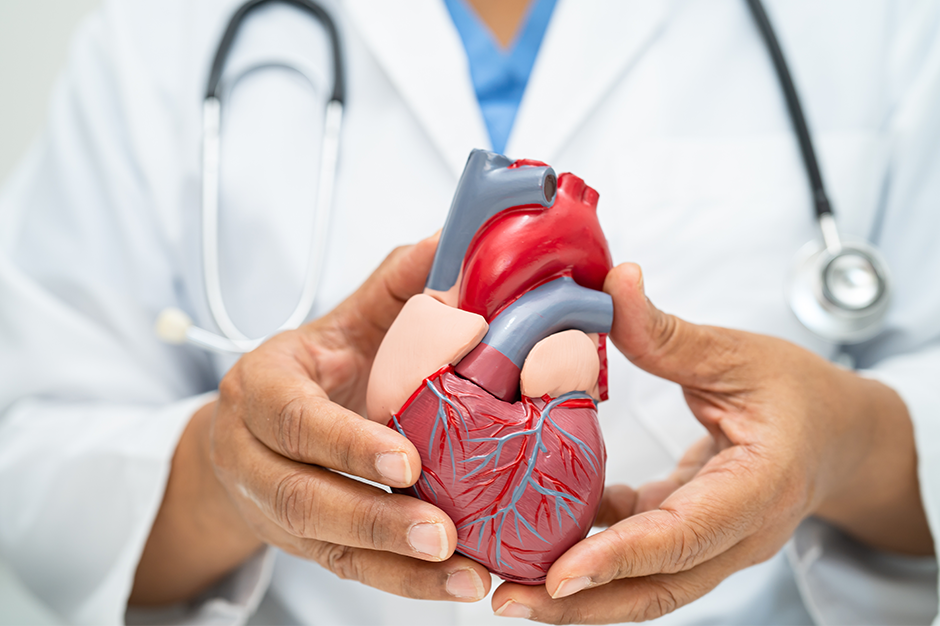Types of Heart Diseases
1. Coronary Artery Disease (CAD): Caused by plaque buildup in the coronary arteries, leading to reduced blood flow and potential heart attacks.
2. Heart Arrhythmias: Irregular or erratic heartbeats can cause the heart to beat too fast, or too slow, affecting the heart’s efficiency.
3. Heart Valve Disease: Damage to one or more of the heart valves, disrupting blood flow and causing the heart to work harder.
4. Heart Failure: A condition where the heart cannot pump sufficient blood to meet the body's needs, often resulting from CAD or high blood pressure.
5. Cardiomyopathy: Disease of the heart muscle, making it difficult for the heart to pump blood effectively.
6. Congenital Heart Defects: Structural heart problems present at birth, which can affect heart function and overall health.

Symptoms of Heart Disease
Recognizing heart disease symptoms early is vital for timely treatment. Common symptoms include:
• Chest Pain or Discomfort: A feeling of pressure, tightness, or squeezing, often indicating CAD.
• Shortness of Breath: Difficulty breathing during rest or activity, a sign of heart failure or valve disease.
• Fatigue: Unusual tiredness, which may indicate heart failure or other heart conditions.
• Irregular Heartbeat: Palpitations or a racing heart, often related to arrhythmias.
• Swelling: In the legs, ankles, and feet, commonly seen in heart failure.
• Dizziness or Light-headedness: Feeling faint or light-headed, which can occur with arrhythmias or other heart conditions.
Ayurvedic Treatment Offered by BJoy Wellness
BJoy Wellness takes pride in its team of experienced Ayurvedic doctors with a proven track record in the field of Ayurvedic treatment. We offer holistic Ayurvedic treatments for heart disease, focusing on natural and effective solutions. Our approach includes:
1. Dietary Recommendations: Personalized diets rich in heart-healthy foods and herbs, like Arjuna or Arjun ki Chhaal, known for their cardioprotective properties.
2. Herbal Remedies: Ayurvedic formulations such as Arjuna Ksheerapaka, Punarnava, and Guggulu to strengthen the heart and improve circulation.
3. Panchakarma Therapy: Detoxification and rejuvenation treatments to remove toxins and enhance heart function.
4. Yoga and Pranayama: Specific yoga postures and breathing exercises designed to improve cardiovascular health and reduce stress.
5. Lifestyle Modifications: Guidance on lifestyle changes, including stress management techniques and regular physical activity, to support heart health.
At BJoy Wellness, our comprehensive Ayurvedic treatments aim to restore balance and promote a healthy heart, ensuring our clients lead healthier, happier lives.Our expert practitioners guide clients through every step of their healing journey, offering support, education, and customized treatment plans.

.png)






